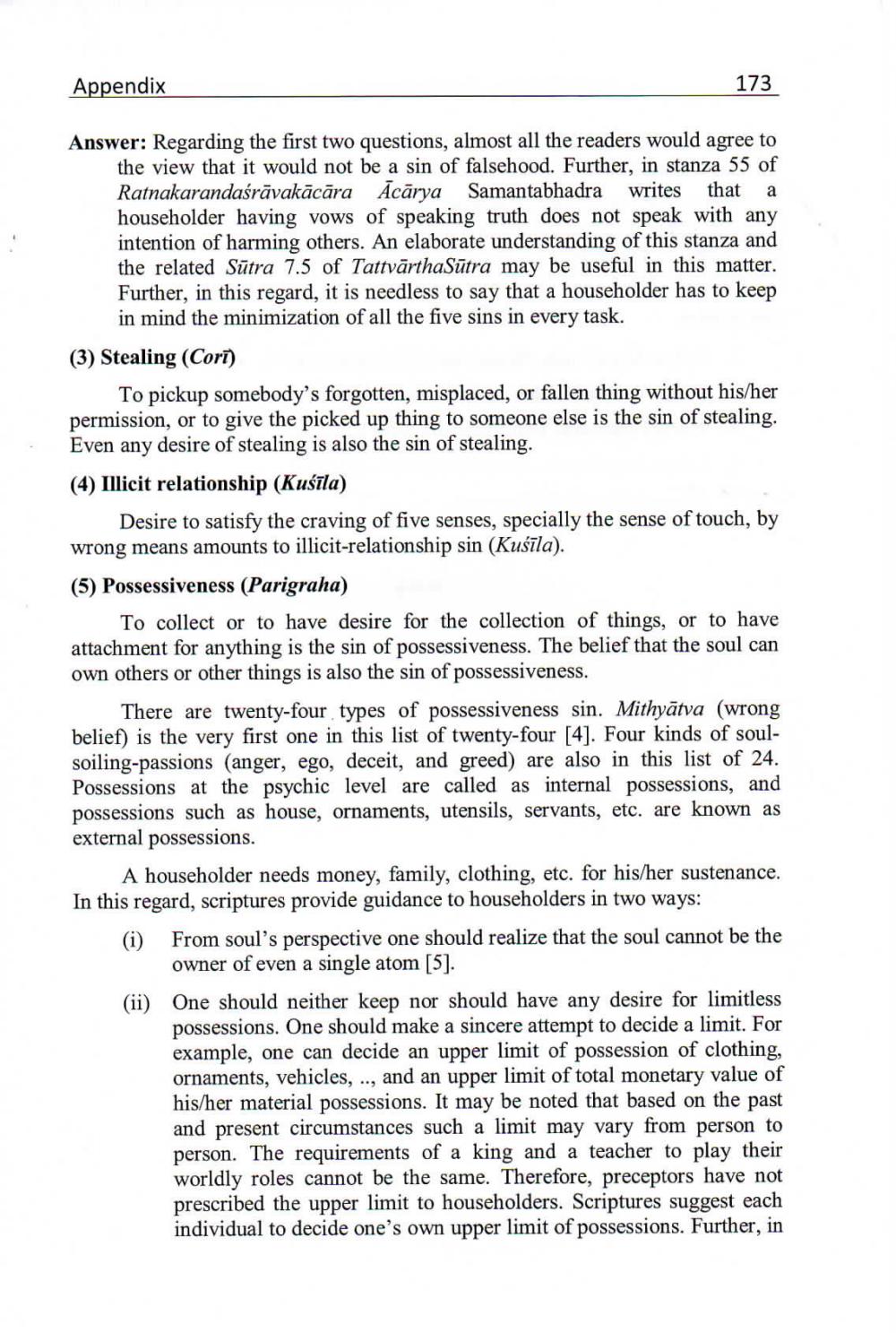________________
Appendix
173
Answer: Regarding the first two questions, almost all the readers would agree to
the view that it would not be a sin of falsehood. Further, in stanza 55 of Ratnakarandaśrāvakācāra Ācārya Samantabhadra writes that a householder having vows of speaking truth does not speak with any intention of harming others. An elaborate understanding of this stanza and the related Sūtra 7.5 of Tattvārtha Sūtra may be useful in this matter. Further, in this regard, it is needless to say that a householder has to keep
in mind the minimization of all the five sins in every task. (3) Stealing (Corī)
To pickup somebody's forgotten, misplaced, or fallen thing without his/her permission, or to give the picked up thing to someone else is the sin of stealing. Even any desire of stealing is also the sin of stealing. (4) Illicit relationship (Kuśīla)
Desire to satisfy the craving of five senses, specially the sense of touch, by wrong means amounts to illicit-relationship sin (Kuśīla).
(5) Possessiveness (Parigraha)
To collect or to have desire for the collection of things, or to have attachment for anything is the sin of possessiveness. The belief that the soul can own others or other things is also the sin of possessiveness.
14]. Four kinds of sou
There are twenty-four types of possessiveness sin. Mithyātva (wrong belief) is the very first one in this list of twenty-four [4]. Four kinds of soulsoiling-passions (anger, ego, deceit, and greed) are also in this list of 24. Possessions at the psychic level are called as internal possessions, and possessions such as house, ornaments, utensils, servants, etc. are known as external possessions.
A householder needs money, family, clothing, etc. for his/her sustenance. In this regard, scriptures provide guidance to householders in two ways:
(i)
From soul's perspective one should realize that the soul cannot be the owner of even a single atom [5].
(ii) One should neither keep nor should have any desire for limitless
possessions. One should make a sincere attempt to decide a limit. For example, one can decide an upper limit of possession of clothing, ornaments, vehicles, .., and an upper limit of total monetary value of his/her material possessions. It may be noted that based on the past and present circumstances such a limit may vary from person to person. The requirements of a king and a teacher to play their worldly roles cannot be the same. Therefore, preceptors have not prescribed the upper limit to householders. Scriptures suggest each individual to decide one's own upper limit of possessions. Further, in




